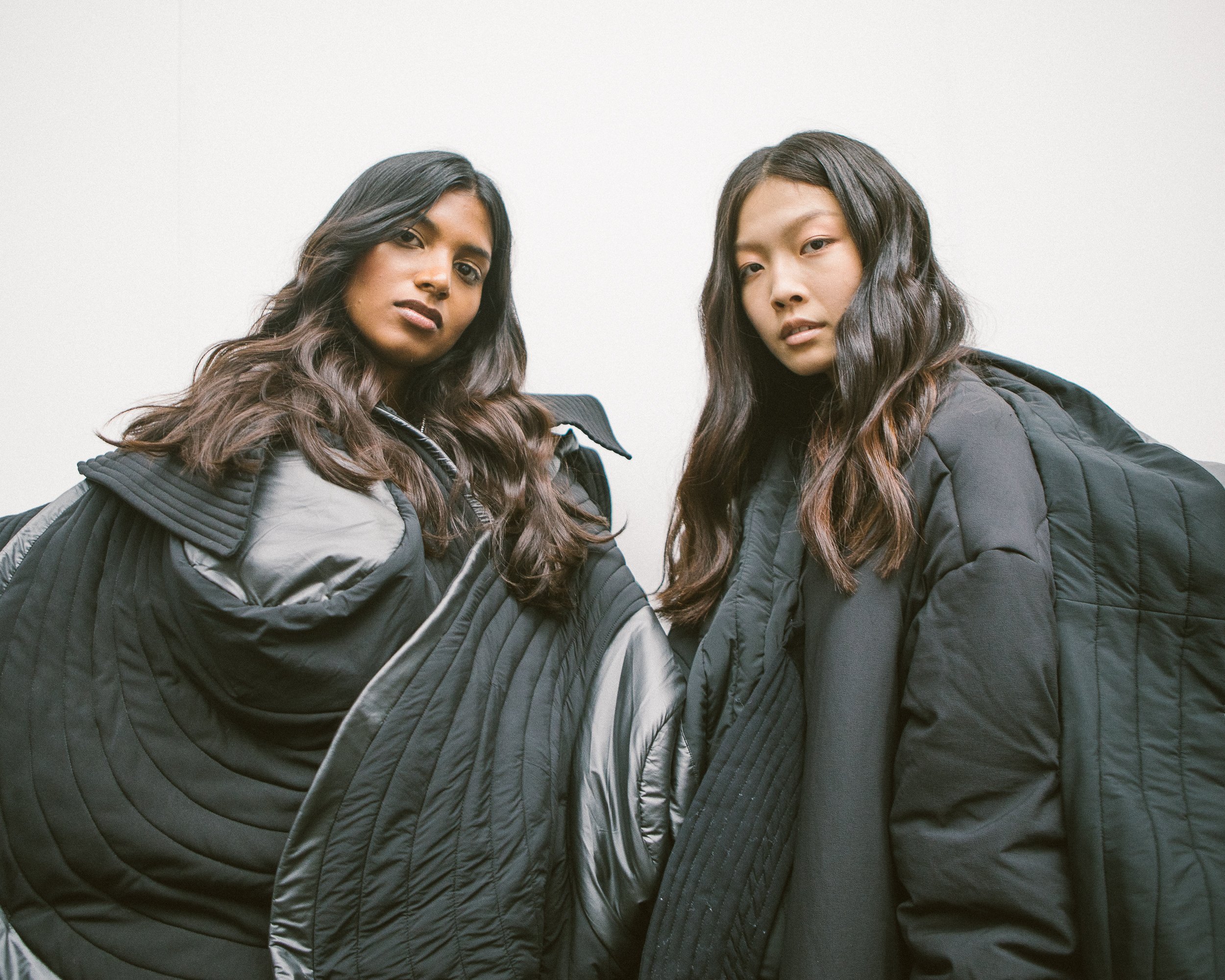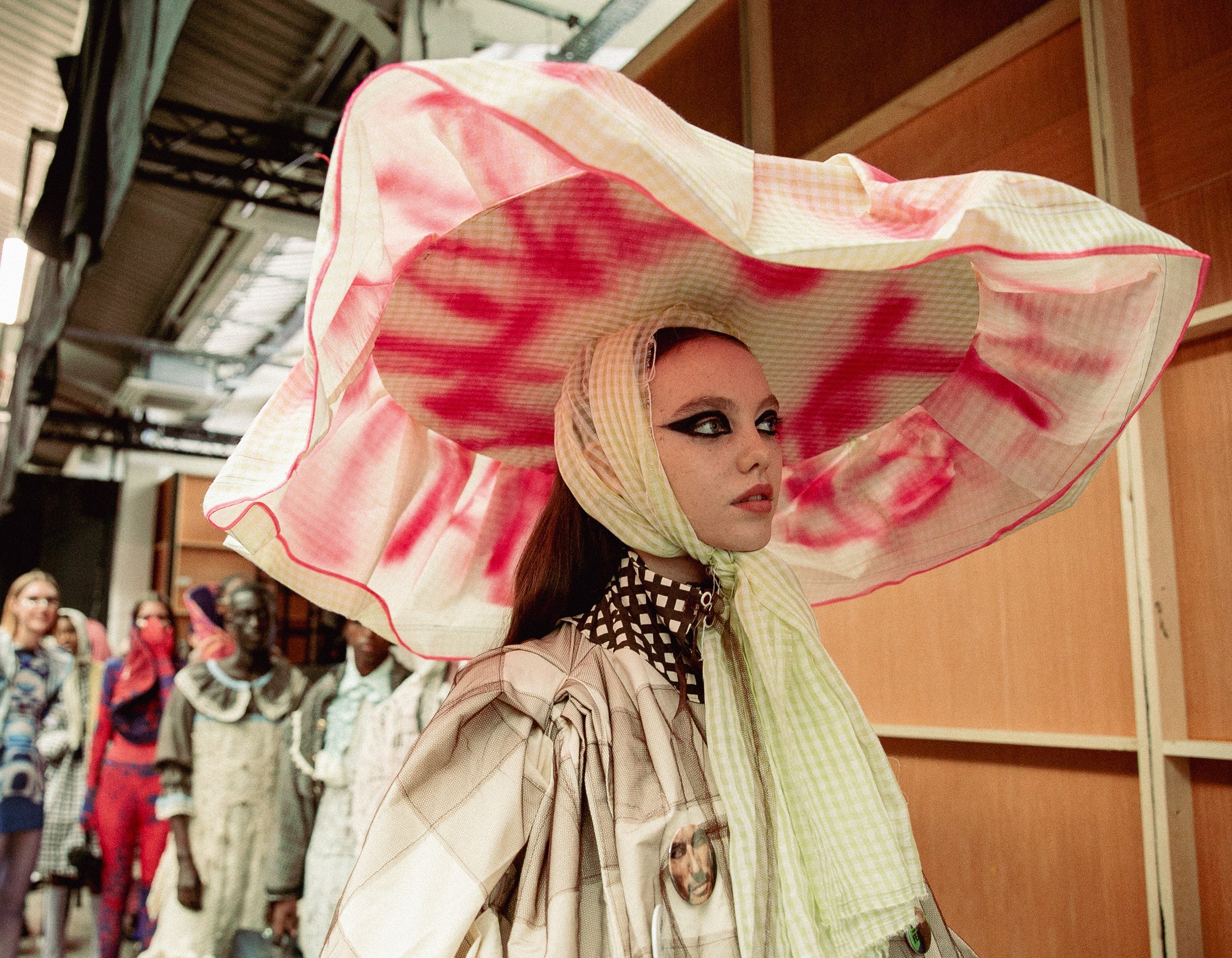How do you apply to university?
Register with UCAS to apply to a university course here then fill in your application here. It will require sharing information such as your contact details, personal circumstances, education history and any work experience you’ve had. You can choose up to five courses, then you’ll have to write a written statement about why you’d like to attend your chosen universities.
For more information, click here.
There are plenty of questions you should ask before applying to a course:
Does the university have inspiring lecturers?
Is there enough space to experiment?
Is there a small student to lecturer ratio?
Will you get enough one-to-one attention?
What are the equipment and facilities like?
Do they offer work placement opportunities?
Do they have good fashion industry links?
Can I see myself living in this city or town for the next few years?
Will this course set me on my desired career pathway?
Who has studied here before, and what are their careers now?
What kind of work are students on this course producing?
Perhaps you can find someone in LinkedIn who has studied the same course already to ask for their advice and answer some of your burning questions, or email your questions to the course leader — their contact information can often be found on the university’s course web page.
Once you’ve found the course you’re interested in studying, it’s time to think about what universities teach this topic. Make sure you are aware of the key deadlines to apply for this course — this will keep you organised and save you from any last-minute application stress. Understand the entry requirements for the course, these will differ between universities and will include the grades you need to qualify as well as other information you’ll need to submit in your application.
You might have to conduct an interview with your application, where you’ll speak with the course leader and share your goals, portfolio, interests and more.
“Be yourself, be as relaxed as possible during any interviews (smile!), as we want to see the real you. Own your work, know your research and inspirations. Be knowledgeable about why and how you create your work and show a real in-depth knowledge of the discipline you are applying to. Include in your application information about the school you are applying to and why you have selected them.”
A GFF member university tutor
What does a university look for in your application and portfolio?
Your application and portfolio are your opportunities to demonstrate your passion and skills that you will bring to and develop on the course you’re applying for. Take your time to ensure that it represents you as a creative person, is filled with your amazing ideas and creative capabilities — this is your time to shine.
Your portfolio could include:
Any art or design projects you’ve completed at school or independently
Any work that demonstrates your creative passion to develop unique and innovative outcomes
Drawings, sketchbooks, photographs, and any other media that shows what you’ve created
Any personal work that demonstrates your interest and knowledge about fashion, whether it’s a blog, magazine, social media account, essay or school report.
Top tips from submission teams at university and course leaders
“You should have at least one project that shows a clear thought and development process, that communicates your approach to developing a design concept or theme, from research through to design development.
This should include any quick scribbled drawings, annotations or initial explorations as well as the more polished developed ideas. Quite often these are more exciting and free. This could be added to with evidence of drawing ability or personal projects relevant to the programme you are applying to. If your school doesn't really require you to develop a project that would be useful within your portfolio, just to push to include this yourself or do an additional personalised project that you feel would benefit your application portfolio.”
“We like to see some evidence of some 3D exploration within their portfolio, preferable fashion related but it's not a requirement. Drawing skills are great but again not essential. We do like to see evidence of a clear thought process, from in-depth research to how you are interpreting this into your initial design ideas.
Design development and showing refinement into final ideas is also key. You need to show a sense of ownership within your work and justify why and how you’ve used your research or particular inspirational images throughout your portfolio.”
“Spend the summer indulging yourself in anything and everything that interests you. This will broaden your awareness of all things related to, or around your chosen discipline.
If you hit on anything that really inspires you, you should delve right in, immersing yourself so that to gain a full understanding and question what you find so intriguing or inspirational about it. This is key to finding your own design directions and individual approaches when answering design briefs.”
What are other routes into the industry?
As you have seen from the job descriptions above, going to university isn’t the only pathway a career in fashion.
For more hand-on, physical jobs, sometimes an apprenticeship can be the best route to start your career. In an apprenticeship, you can start learning and practicing your craft right away. You’ll start by assisting your mentor and doing more basic tasks, then work your way up the career ladder as you gain experience.
The benefits of apprenticeships include gaining tangible work experience as well as receiving a qualification. This means you’ll be earning money straight away, and may not accrue the student loan and education debts that you would if you studied at university. You can start an apprenticeship straight out of school (if you’re over 16), so you’ll be on the career ladder a few years faster than your friends who go to university. Another perk? You’re still considered a student, meaning you’re eligible for student discounts!
Entrepreneurship
If you have a great idea, why not start your own business? Whether you do it as a side project alongside a part time job or want to dive straight in and be your own boss, there have never been more resources available to help you achieve your goals. First, you need to find your niche in the market, whether it’s writing social media and blog posts for fashion brands or knitting woolly creations that you sell on Etsy. You’ll have to learn how to market yourself, manage your finances, invest money back into your business, and plan for the growth and future of your company. Being your own boss sounds fun, but it isn’t easy. Entrepreneurs are business-minded and creative, love solving problems, know when to ask for help, and are always on the lookout for new opportunities. Think you’ve got what it takes? Start small, learn quickly, and go for it.
Work Experience
If you love fashion, why not look for work in a clothing store? This is a great place to learn all about clothing, sales, visual merchandising, and marketing. You never know what opportunities can come from starting on the shop floor.
If you want to learn more or develop your skills in a certain area, you might be able to ask your manager to connect you with head office. Fashion companies like to hire internally and by demonstrating your commitment and enthusiasm in their retail locations, you could be in the running for many more opportunities.
Volunteering
Volunteering opportunities are unpaid short-term roles where you’re able to gain some experience and build up your CV. Whether it’s volunteering in your local charity shop or as a runner for a local event, the benefits of volunteering include building your network, developing your communication skills, and gaining insight into different career options in fashion. Unfortunately, most volunteering roles are not paid, so they aren’t accessible to everyone. If you do choose to volunteer, ensure that there are parameters to the agreement, such as length of time you’ll be volunteering for and the specific roles you’ll be required to do.
Sustainability
Being the 2nd biggest polluting industry in the world, Sustainability is the leading hot topic the fashion industry are working towards solving. Researching and creating innovative changes and better working practices.
EXPLORE OUR THREE LEADING TOPICS BELOW:
What is Sustainable Fashion?
Our Guide to Sustainable Shopping?
The Lifecycle of a Garment?
What is Sustainable Fashion?
Let’s begin by looking at what being sustainable means.
Sustainability is using the planet’s natural resources responsibly so we can live our lives now without compromising the needs of future generations or endangering the environment.
Our guide to Sustainable Shopping
Do you want to live within the planet’s boundaries and slow down climate change? Then to quote the great Vivienne Westwood “buy less, choose well and make it last”.
The Lifecycle of a Garment
Look at what you’re wearing today. Touch the fabric. Look at the details. Remember how you put it on. Does it have a zip? Buttons? Is it new or an old favourite?
Think for a moment.














